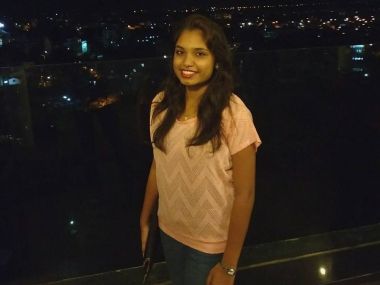Bhopal/Delhi: The suicide of Dr Payal Tadvi has shocked the medical fraternity as well as the country. Even as the president of the Indian Medical Association, in an attempt to carry out damage control, has asserted that there is no caste-based discrimination in the field, experiences of several Dalit doctors tell a different story. There are several instances of doctors who have alleged that they faced a lot of harassment during their MBBS days and continue to face such behaviour even now in their careers. ‘Upper caste students couldn’t believe a Dalit could top’ “’Adham jati mein shiksha paye, bhayahu yatha ahi dudh pilaye," (educating a lower-caste person is the same as feeding milk to a snake)’ — this was a saying I used to hear several times a day from a senior professor," recalls Dr Surya Bali, who belongs to a Scheduled Tribe and is currently working as an additional professor at AIIMS, Bhopal. He also holds a degree in Master of Health Administration from the University of Florida. Bali recalls, “From SGS Inter-College in Jaunpur, Uttar Pradesh, to AIIMS Bhopal, there have been hundreds of incidents wherein fellow students and even teachers tormented me over my caste. In 1989, I topped in my Thakur-dominated college. In response, upper-caste students tore up my marksheet, as they couldn’t believe that a Dalit student could stand first. They used to pass casteist remarks and mock me, asking why I was bothering to study, as ultimately I would have to work in the fields with my parents.” [caption id=“attachment_6717491” align=“alignleft” width=“380”]  Payal Tadvi. Image/Facebook[/caption] After his matriculation, Bali was discouraged by some from opting for the science stream. “Three teachers at the inter-college were against my decision to take science. Had another teacher not stepped in to help me, I wouldn’t have been able to become a doctor. He told the other teachers that as I was the topper and wanted to study science, they should allow me to do so. Similarly, another upper caste teacher at the Banaras Hindu University helped me a lot during my tough college days.” Bali clearly remembers the five years that he spent pursuing his MBBS at Moti Lal Nehru Medical College. He recalls, “Every day was like hell. The upper caste students used to ignore me, and when I befriended lower caste students, they would accuse me of being casteist. I survived five years in total isolation. There was also a lot of frustration inside me, because I never availed reservation and was a topper throughout; yet, people used to comment on my caste and colour, and I was at a loss about how to convince them to give me a chance. He says, “In my third year of MBBS during the final exam, a senior professor was conducting a viva examination along with an external examiner. I answered all the questions, while several others failed to answer them. All of a sudden, the professor abused three upper-caste students, saying, ‘You should be ashamed that a Dalit student is answering questions, and you, despite being upper caste, are not doing so.’ I was left speechless initially, but later, I spoke up against his casteist remark.” After his studies, Bali landed up a job at the same (Moti Lal Nehru) college as an assistant professor, where he again faced discrimination, this time from the fellow teachers. He believes that discrimination at AIIMS, Bhopal has taken a toll on his career. “I had set up an excellent telemedicine branch in the community medicine department. The results were great, and Bhopal was setting an example in the field of telemedicine. People from remote areas were reaping its benefits, and yet, I had to face discrimination within AIIMS. One of its directors ruined the whole plan and kick me out of the project.” Another doctor, who was an intern in the same (gynaecology) department that Tadvi was pursuing her residency in, says he has some idea of what she must have gone through. “The work culture of the gynaecology department of Nair hospital is not friendly. I know how seniors carry out harassment in the name of academics,” said Harshanand Popalwar, who was an intern in the gynaecology department in 2009. Popalwar said, “We had made a ‘Dr Ambedkar Medicos’ Association’, under which we used to unite reserved category students to prevent such tragedies and remove the inferiority complex from the minds of students. But the workload at the post-graduation level is so immense that it is not possible to give time to such activities. Many post-graduate students felt uncomfortable about attending such programmes, as they feared that they would end up revealing the caste that they belong to.” He further recalled, “During my post-graduation days, a fellow student, who himself belongs to the OBC category, taunted me for being a member of the Scheduled Castes. He kept falsely insinuating that I got in through the quota system and, hence, did not deserve the seat. But I was strong enough to handle the harassment and topped the batch.” Popalwar now works at Delhi’s Safdarjung Hospital as a specialist in Physical Medicine and Rehabilitation. His colleague, Chetan, said, “People ask me why I don’t have a surname. I come from a small village near Bengaluru, and I’m lucky that my father decided to drop the surname for me. As my classmates and doctors were unaware of my caste, they used to pass casteist remarks in front of me. It is frustrating to see medical professional holding such a mentality.” ‘Casteism hides behind white coats’ Casteism in the medical fraternity is as deep-rooted as in any other part of society, says Brajesh Lahri, an MD, Ophthalmology student at AIIMS, Delhi. “It is just that it is not apparent, and is hidden behind white coats.” “The first sentence I heard from a senior professor after joining was, ‘You people are lucky; you don’t even need to study.’ That statement ignored the fact that I had qualified in the general category. I could have got a seat in radio diagnosis, which is considered the topmost branch, but I chose the branch that I loved. Such a comment was not what I was expecting at AIIMS," he said. Lahri explained how such discrimination affects students. He said, “When seniors distribute the surgical cases amongst juniors, the hidden casteism in them becomes apparent —a reserved category student gets the least number of cases, unless the senior is also from the reserved category or the reserved category junior has shown some really good surgical skills in front of everyone. So, basically, if it’s a choice between two juniors with average skills, one from the reserved category and the other from the general category, the case will go to the latter. It’s an unwritten rule.” (The author is a Bhopal-based freelance writer and a member of 101Reporters.com)
Casteism in the medical fraternity is as deep-rooted as in any other part of society, says Brajesh Lahri, a medical student.
Advertisement
End of Article


)

)
)
)
)
)
)
)
)



